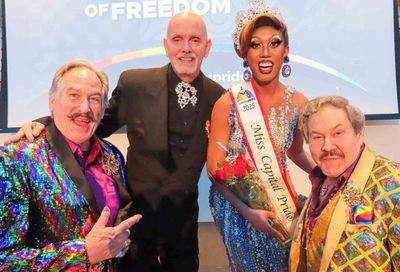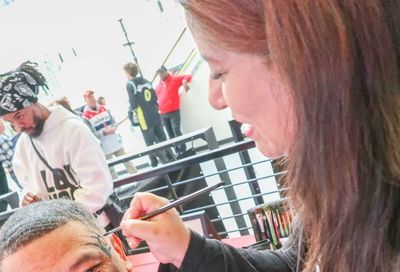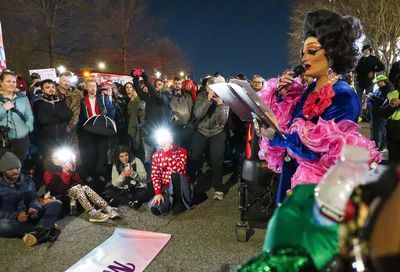Monkeypox Survey: Gay and Bisexual Men Cut Back on Sex
A new study found almost half of gay and bisexual men reduced their number of sex partners and one-time sexual encounters after learning about monkeypox.

Many gay and bisexual men have reduced their number of sex partners, one-time sexual encounters, and use of dating apps in response to monkeypox, according to a new study.
“These findings suggest that MSM [men who have sex with men] are already taking actions to protect their sexual health and making decisions to reduce risk to themselves and their partners,” the study reported.
The study — published Friday, August 26 in the Centers for Disease Control and Prevention’s Morbidity and Mortality Weekly Report — asked how monkeypox affected the behavior of 824 men who have sex with men.
In the study, 47.8% of respondents said they reduced their number of sex partners since learning about the monkeypox outbreak.
Additionally, 49.8% said they reduced one-time sexual encounters, and 49.6% said they reduced sex with partners they met through dating apps or sex venues.
Since learning of the disease, 50.4% also said they reduced group sex participation, and 41.9% lowered their attendance at sex venues or social events with close contact.
These changes align with harm reduction strategies recommended for preventing the spread of monkeypox, according to the study.
Led by Kevin Delaney of the CDC’s Monkeypox Emergency Response Team, the survey also examined rates of vaccination against monkeypox.
Shortages of the Jynneos, a vaccine used to prevent monkeypox and smallpox, have delayed efforts to vaccinate at-risk populations.
In the study, 18.6% of the respondents said they’d received at least one dose of vaccination. Of the 662 respondents who had not, 28.5% said they had attempted to get vaccinated but were unsuccessful.
The vaccination rates weren’t equitable, either.
“These data also suggest racial and ethnic disparities in vaccination, with particularly low reported vaccination among Black men, who are disproportionately affected by monkeypox,” the researchers wrote.
However, the study, which was conducted online between August 5 and 15, faces limitations.
For one, responses were entirely self-reported. For another, the study used a convenience survey: Its respondents are all cisgender gay men willing to fill out an online survey about monkeypox.
“This subset of men is older and less racially diverse than the full AMIS sample,” the study said. “[P]ersons who were more concerned about monkeypox might have been more likely to complete the survey.”
While monkeypox spreads through various forms of close contact, not just sex, another survey published Friday, August 26 in the Morbidity and Mortality Weekly Report found one-time sexual partnerships to be responsible for about 50% of daily Monkeypox virus transmission.
“A 40% reduction in one-time partnerships might delay the spread of monkeypox and reduce the percentage of persons infected by 20% to 31%,” the second study said.
[wpforms id=”216895″]
Support Metro Weekly’s Journalism
These are challenging times for news organizations. And yet it’s crucial we stay active and provide vital resources and information to both our local readers and the world. So won’t you please take a moment and consider supporting Metro Weekly with a membership? For as little as $5 a month, you can help ensure Metro Weekly magazine and MetroWeekly.com remain free, viable resources as we provide the best, most diverse, culturally-resonant LGBTQ coverage in both the D.C. region and around the world. Memberships come with exclusive perks and discounts, your own personal digital delivery of each week’s magazine (and an archive), access to our Member's Lounge when it launches this fall, and exclusive members-only items like Metro Weekly Membership Mugs and Tote Bags! Check out all our membership levels here and please join us today!

























You must be logged in to post a comment.